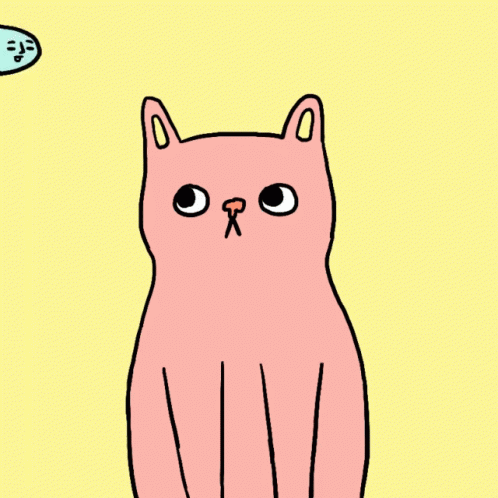
Most cat parents feel the urge to share foods with their cat, especially when they decide your sandwich is more scrumptious than the cat food in their bowl. After all, they’re already a part of their family, and as any family goes, sharing is caring.
And since cats are curious creatures, chances are, they might’ve tried licking some spilled drinks on the floor or have sneaked some meals left on the table without your supervision!
Human foods are not entirely good for your cat. Some could even pose serious health risks when consumed by your cat! To avoid imposing any health problems to your feline friend, keep these 7 human foods away from your her reach and curiosity!
1. Chocolate
It’s commonly known that chocolate is poisonous for dogs, but this cocoa treat is twice toxic for your feline pets! The combination of caffeine and theobromine found in chocolate can cause:
- Abnormal heart rate
- Muscle tremors/twitching
- Seizures
- Diarrhea

If you’re a chocolate lover, keep your sweet treats in the fridge or shelves/cupboards out of your cat’s reach! Oh, and the darker the chocolate, the more poisonous it can be for cats since they have a higher cocoa content.
2. Milk and other dairy products
Quite surprising, isn’t it? After all, when we think of cats, the first thing that pops into mind is milk.
Turns out, most cats are lactose intolerant and can cause stomach problems to your feline friend!
Here’s the truth behind this surprising fact. During their kitten days, cats were producing high levels of lactase, the enzyme responsible for breaking down the lactose sugars from their mother’s milk. As they grow older, the production of these enzymes decreases, making it more impossible for them to digest all types of milk.
Aside from gastrointestinal problems, milk can also cause vomiting and diarrhea to cats.
Other dairy products like cheese and ice cream are okay for cats if given by small portions and only a few times. Just stay away from sugar-free products. They contain artificial sweeteners like Xylitol, which are more life-threatening for your cats.
3. Coffee, tea and caffeinated drinks and meds
The caffeine found in these drinks and diet pills causes hyperactivity in our cats, making them restless and jittery.

According to Dr. Elisa Mazzafero of Cornell University College of Veterinary Medicine, the effect of caffeine depends on the size of the animal and the amount they consumed. And since cats are smaller compared to dogs, caffeine affects their body quicker. A small amount consumed can immediately cause:
- Cardiac arrhythmia
- Pancreatic problems
- High blood pressure
- Muscle tremors
- Organ failure
- Vomiting
If your cat takes 1-2 licks of spilled coffee on the floor, your cat is still safe from caffeine poisoning. But if she accidentally consumes unused coffee grounds/beans, tea bags or pills, rush to the nearest vet!
4. Onion and Garlic
Onions, garlic, leeks, scallions, and chives cause hemolysis, the breakdown of a cat’s red blood cells that causes weakness and panting. The oxidants present in onions, specifically, reacts with the oxygen in their red blood cells, which is the one to blame when your cat experiences these symptoms:
- Increased heart rate
- Hemolytic anemia
- Hematuria (blood in urine)
- Liver damage
- GI upset
- Vomiting
5. Grapes and raisins
Grapes and its dehydrated version, raisin, can cause kidney failures to your cat. Although vets are still studying the reason why grapes are toxic to cats, and even if your cat doesn’t show any signs of distress when she eats some, it’s best to avoid giving grapes and raisins as treats.
6. Raw fish, meat, eggs, and fat trimmings
Raw fish? I thought cats love raw fish?

Yeah, well not everything we love is good for us. Like raw fish. They can’t cause severe or immediate problems to our cats, but it’s best to consult with your vets first before including this and other raw food in your cat’s diet. You wouldn’t want your cat to catch Salmonella or E. coli, or suffer symptoms like vomiting and diarrhea, right? Plus, fat trimmings are known to cause inflammation of pancreas in cats.
7. Alcoholic beverages
Yes, cats can get drunk too, but not in the stumble-everywhere-and-pour-your-heart-out kinda way. And no matter how much you want to share some wine with your cat on a date night because you can’t find a date, don’t ever think of giving wine, beer or any alcoholic drink to your cats.

Alcoholic beverages are made from grapes and hops, and as mentioned, grapes are not good for cats. No known damaging effects of hops on cats were ever recorded, but since they cause blood and body temperature damages to dogs, it’s best to avoid these for your cats too.

Having a cat is like having a kid at home
They bring joy to your life, but they need more supervision and care to keep them healthy and protect them from risks.
If your cat has accidentally ingested any of the mentioned foods, bring her to a vet immediately. Early diagnosis and treatment could save your cat from suffering more serious health issues!
Keep all these harmful foods out of your cat’s reach. Store them in higher cupboards or shelves and lockable storages. Cover your leftover foods on the table all the time too. Keep leftovers in the fridge, whenever possible.
And of course, stick with pet foods only, especially those formulated for your cat’s sensitive digestive systems!










